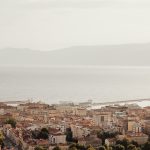ZAGREB, July 31, 2019 – Croatian President Kolinda Grabar-Kitarović on Wednesday resolutely dismissed a Jerusalem Post article which says that during her meeting with Israel’s president she said that Bosnia and Herzegovina was “controlled by militant Islam” and had “in some respects been taken over by people who have connections with Iran and terrorist organizations,” which was strongly condemned in Sarajevo.
“Absolutely not. I repeat, I didn’t say that. With President Reuven Rivlin I talked in the context of what I’m always saying about Bosnia and Herzegovina and our neighbours and what I, after all, said at the press conferences with Rivlin and Prime Minister Netanyahu, which is that I wish to see all our neighbours as European Union member states as soon as possible,” Grabar-Kitarović told Croatian reporters covering her state visit to Israel.
“I have no idea how that statement came about because I didn’t talk with any reporter, didn’t give interviews nor made any statements other than those you heard,” she added.
She said this was about comments on comments made by the journalist who wrote that.
The Croat and Bosniak members of the BiH Presidency, Željko Komšić and Šefik Džaferović respectively, on Tuesday strongly attacked Grabar-Kitarović over her alleged statement that BiH was “unstable” and “controlled by militant Islam.”
Komšić said Grabar-Kitarović was “unstable and not BiH,” while Džaferović accused her of “repeating lies which spread xenophobia” and that Croatia had a “fascist policy” towards BiH.
“I repeat, I didn’t say that. And I completely reject these strong responses in which Croatia is compared with fascism or a fascist state,” Grabar-Kitarović said, calling it complete nonsense.
She said it was high time to think a little about Croatia-BiH relations. “Recently we have seen BiH take many steps about Croatia which are quite aggressive, from accusations about the illegal operations of our secret services to judicial threats concerning the Pelješac bridge.”
The two sides should talk about cooperation and how to deal with common issues and the threats which are evidently reappearing in our region, and about how we can help each other resolve those problems, the president said.
“On the other hand, Croatia is here and Croatia is willing to help any neighbouring state, including BiH, in the reform process and everything else which they must comply with in order to become EU members as soon as possible,” she added.
Asked about Iran and terrorist organisations connected with it that operate in BiH, the president said she did not mention Iran at all at the press conferences in Israel. “Regarding the talks with the president and the prime minister, I talked in the context of the views the European Union shares on Iran, namely on honouring the agreement on nuclear weapons, i.e. the use of nuclear energy for peacetime ends.”
More news about relations between Croatia and Bosnia and Herzegovina can be found in the Politics section.







